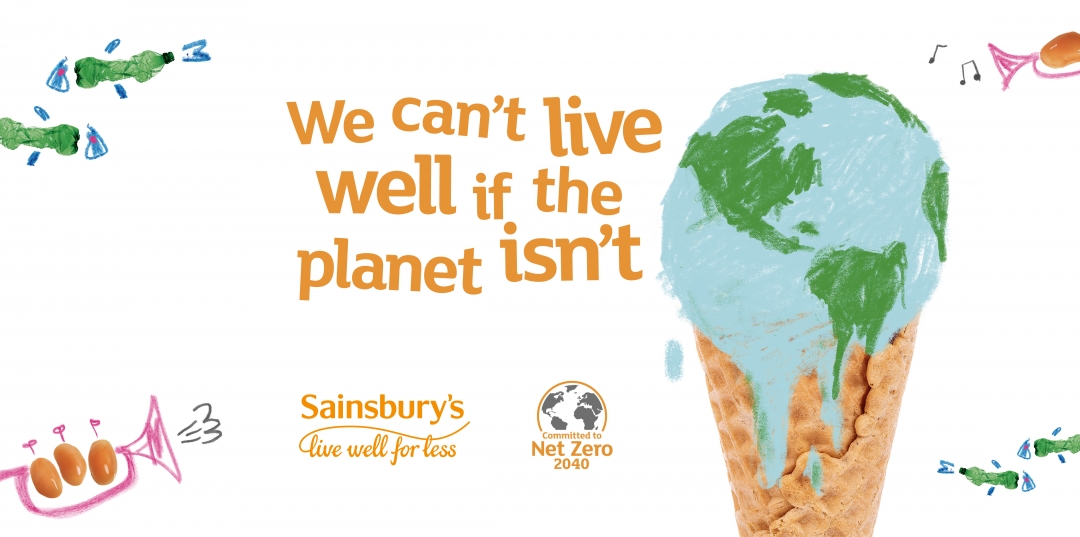Sustainable retail brands are the future of the commerce industry, aiming to reduce their environmental impact by being as responsible as possible. However, adopting sustainable practices is a relatively new endeavour, with many brands and retailers jumping on board the carbon-neutral train in recent years.
At Reapp, we’re committed to sustainability, aiming to make the world a better place with our responsible approach to the retail arena. Environmental accountability is a key factor in everything we do, supporting all our clients on their own green missions.
If you’d like to join the ranks of our eco brands, why not enquire today?
Going green: Why does it matter?

So, why is going green so crucial for modern retail brands?
With the current threat of climate change, it’s never been more important to be socially responsible. In recent years, the environmental impact of humans has become obvious, with extreme weather events now occurring across the globe. As an example of this, the summer of 2023 was the hottest on record globally, with wildfires decimating over 460,000 hectares of forest over the year.
The coming climate crisis has prompted many brands and retailers to take a more responsible approach to business, aiming to reduce their carbon footprints for the betterment of society.
Recent studies have also shown that many shoppers nowadays prefer to purchase items from green companies, showing another key benefit of jumping on the eco-friendly train.
For instance, a recent study by Dentsu revealed that Gen Z consumers tend to prioritise brands that demonstrate purpose over profit. A whopping 90% of Gen Z participants reported having significant concerns with social issues, which heavily influence their purchasing decisions. As you can see, becoming a sustainable brand is important for both the planet and your profits.
How can you make your brand more eco-friendly?
We’ve just been through some of the key reasons why developing sustainable retail brands is important in the modern retail sphere. However, it’s sometimes easier said than done, and we understand that it can be hard to know where to start when attempting to reduce your carbon footprint.
Luckily, Reapp is here to help – our years of sustainable brand experience have given us all the knowledge needed to guide you through the carbon-neutral game.
Read on to find out more about turning your retail space into a green heaven…
1. Introduce energy-efficient practices
As a business, it’s natural that you’ll need to use some energy to make your products and run your company. We understand that stopping your energy use completely isn’t an option, but you can still work to introduce energy-efficient practices into your retail operations.
If your quest is to become carbon neutral, you can start by opting for energy-saving lights, appliances, and equipment. Instead of using traditional incandescent light bulbs, energy-saving options such as LED light bulbs can be installed – also saving you money in the long run. This practice isn’t just limited to lighting though – many companies now make energy-efficient appliances, which you can source for your business needs.
Another option is to buy your energy from renewable sources, such as wind power or solar power. The British government offers incentives for businesses using renewable energy sources – you may even be able to get your solar panels fitted for a reduced price! It isn’t always possible to choose exactly where your energy comes from, but there are a few business energy companies dotted about the UK who may be able to offer you a suitable green deal.
2. Opt for green packing materials
If you want to go carbon neutral and be classed as one of the best eco-friendly brands in the UK, you need to opt for sustainable packaging in all areas of your business.
This is a particular problem for sustainable food brands in the UK, as a lot of food packaging tends to use plastic – refusing to stock items packed in plastic may cause further issues with the supply chain. However, some waves have been made within the industry recently, with edible packaging, eco-friendly plastic, and recycled materials becoming more common within the food industry supply chain. Seaweed and other natural materials are currently being considered, crafting packaging that decomposes naturally by itself.
You should also consider reducing your paper usage. With the advent of internet technology, paper products have become somewhat obsolete in the modern world. If, for whatever reason, you’re still highly reliant on paper, it’s worth seeing whether your business operations can be moved online instead. Nowadays, things such as employee handbooks, wage slips, and contracts can be completed digitally, so there’s really no need to continue using paper. If you have any tasks that can’t be done digitally, recycled materials are a must.
However, don’t forget that paper is still superior to plastic when considering different types of sustainable packaging.
3. Make sustainability part of your brand story
As previously stated, modern consumers (particularly those within Gen Z) are more likely to purchase items from brands that align with their social views. If you want to impress today’s discerning customers, you need to make sustainability a key part of your brand story. However, you also need to ensure your environmentally-friendly approach to retail is publicised appropriately – after all, how are people meant to know you’re a responsible brand if you don’t shout about it?

Several well-known retail businesses have done exactly that, promoting themselves as responsible brands with great success:
- Ikea – The Swedish manufacturer Ikea is an eco-friendly business, with over 50% of Ikea’s wood coming from sustainable forests. Ikea plans to reach net zero emissions by 2050 – with over 700,000 solar panels powering their stores, they’re now well on their way to being a net energy exporter.
- H&M – The fashion industry is well known for its ethical dilemmas, with sweatshops and cheap materials often used to make as much money as possible for large fashion houses. However, since 2013, H&M has taken a slightly different approach. As well as starting a clothing collection scheme that year, the sustainable retail brand also produces ethical collections, including clothing made of recycled fishing nets and other items.
- Sainsbury’s – Sainsbury’s is a store that should need no introduction, as it’s one of the most popular supermarkets in the UK. Despite selling a wide array of items from different sources, Sainsbury’s has set their sights on sustainability at home, aiming to outweigh the environmental implications of the plastic packaging used for their goods. Instead, the grocery brand has outlined a sustainability plan, supporting clean water initiatives and sourcing products ethically across the supply chain.
Your messaging and the way you communicate with your customers needs to include references to your eco-friendly ethos, shouting from the rooftops for all to hear. Make sustainability a major selling point of your brand, and you’ll make it one of the main reasons why people keep coming back for more.
One idea is to incorporate a content marketing and SEO strategy into your field marketing campaigns. Ensure your writers are aware of how important sustainability is to your brand, and you’ll get the word out in no time.
You could also consider becoming registered as B Corp Certified like our sister company Tactical Solutions. Businesses that are B Corp Certified are verified by B Lab to meet high standards of transparency, accountability, and social and environmental performance. Becoming a B Corp is a prominent signal to your audience that you’re committed to becoming a sustainable retail brand.
Sustainable retail brands: The future of retail
Sustainable retail brands are the future of the industry, enabling both customers and businesses to do their bit to save the planet. However, it’s not just about the life-changing implications of going green – it’s also about promoting your brand as an eco-friendly giant, sure to impress consumers across the globe.
At Reapp, we’re dedicated to the planet, putting our sustainable ethos first in all areas of our business. If you’d like to grow your brand with a responsible field marketing agency and a suite of comprehensive software products, we should always be your first choice.
Let’s get started today – book your demo now!
